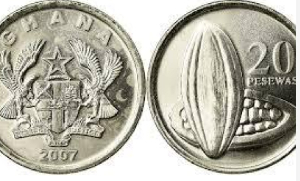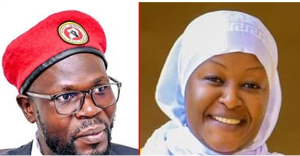As it awaits Cabinet’s approval
By Adu Koranteng - the New Crusading Guide
A draft Aid Policy developed by stakeholders in the financial sector and submitted to cabinet for scrutiny yet to be approved by Cabinet, according to Ms Mary-Ann Addo, Director of the multilateral division of the external Resource Mobilization at the ministry of Finance. The policy was submitted to cabinet three weeks ago for assessment to help regulate and ensure proper management and monitoring of aid for the benefit of the ordinary Ghanaian.
Since the policy is just a guideline on aid disbursement its implementation is going to be fast tracked immediately after cabinet approval without the need for a legislative instrument from Parliament. This is because it is not a law (Act) but policy guideline to guide how aid is effectively and efficiently disbursed
The aid policy when approved will operate between 2011 and 2015 to strengthen the capacity of stakeholder institutions in the country to track the progress of both the country and development partners on their commitments to aid effectiveness, to identify mechanisms through which Ghana can wean itself off aid and development assistance from the medium to the long term.
In an address at a sensitization seminar on Aid Effectiveness for the media at Akosombo, in the eastern region last week, Ms Mary-Ann Addo, said the new aid policy, was fashioned after the objectives of the Paris Declaration on Aid Effectiveness and would ensure that all programmes and projects submitted by ministries, departments and agencies (MDAs) were costed.
According to her, the aid policy, when approved by parliament, would be implemented for a couple of years after which a review would be conducted to provide a clear picture of how Ghanaians would want to wean themselves off aid. She noted that the aid policy would also assist the country to seek more grants, concessionary loans, while helping the country to eventually become less aid-dependent.
She noted that The Aid Policy is important to make aid work properly for Ghana as the Paris Declaration seeks to achieve. According to her, The Declaration spelt out new aid architecture for recipients in developing countries and member countries of the Organization of Economic Co-operation and Development (OECD).
”It enjoins aid givers to harmonize Aid and not fragment them within the same country; make aid delivery predictable and aligning what they intend to offer with the needs and wants of the recipient country”.
In addition, she said the new aid architecture require donor partners to use the systems of the recipient countries to deliver aid and not rely on systems pertaining to and prevailing in the country offering the development assistance.
Currently, stakeholders are working around the clock towards the fourth High Level Forum on Aid Effectiveness in Busan, South Korea. Ms Addo said developing countries would use the 4th HLF in Busan to reiterate issues of aligning aid to country systems; urging donors to shift from policy-based conditionality to outcome-based, thus they should not impose policies on the partner (recipient) country.
“Donors have agreed to start immediately to work on development plans on using country systems; making public all conditions linked to disbursements; providing full and timely info on annual commitments and actual disbursements,” Ms Addo recalled, and added that they would be held by those very commitments to help make aid work better.
She said the aid policy will work to eliminate bureaucracy and move into action where aid is needed to improve the lives and conditions of the people.
Mrs. Stella William, an economist with the ministry of Finance in an address said the seminar was aimed at equipping journalists and information officers from the Ministry of Information with information relating to the Paris Declaration on Aid Effectiveness, updates on the AAA, as well as provide the areas of concern for the upcoming forum in Busan in November this year.
The Triple A focuses on achieving the Millennium Development Goals (MDGs), as it stressed the importance of using country systems and ownership, but the process has not delivered to the expectation of all partners, particularly the developing countries.
For that to happen, Mrs. Williams said there was the need for all stakeholders to come on board to own the process, saying “political leaders, key decision makers, civil society and all involved in the process, including the citizenry must be informed at all times on the progress of aid effectiveness”.
After the first High Level Forum on Aid Effectiveness (HLF1) in Monterrey in 2003, came the Paris Declaration on Aid Effectiveness in 2005 and the HLF3 held in Accra in 2008, which came out with the Accra Agenda for Action (AAA), also known as the Triple A.
General News of Monday, 4 July 2011
Source: New Crusading Guide












